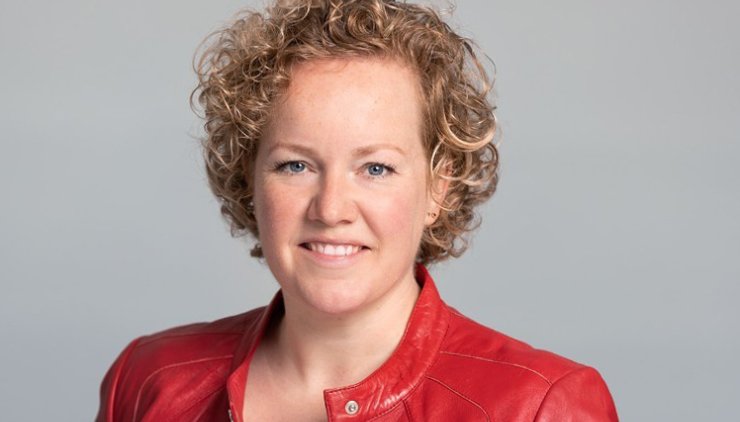-
2 mei
-
Highlighted
At FIBS, students can graduate with professional products, how does that work?

Graduating with professional products will start as a pilot with a small group of students. If the pilot turns out positive, all graduating students will have to deal with it from February 2024.
Today's society demands a different kind of education, they noticed at FIBS in Venlo. 'Our students often create advisory reports for the companies they graduate from. But quite often we heard that companies had different expectations regarding these solutions or advices. On the other hand, we sometimes had very inventive students whose graduation products could not properly be assessed in our current system,' says Marieke Brinkman, Team Leader International Business.
Creative thinking
Marieke began working on a different approach within FIBS. 'We want our students to be able to really add value to the industry. We expect them to be able to reflect critically on their own decisions and the data they have collected, to be entrepreneurial and able to adapt to changing circumstances. That also has consequences for the way we do assessments.
In this context, she welcomes the growing role of AI. 'Programs like ChatGPT show exactly why working with professional products is necessary. People who can do things that computers cannot, such as creative thinking, are essential now.'
Tested in practice
Students who graduate with professional products must therefore demonstrate a capacity for innovation and creativity, critical thinking and research. They receive three formative interviews during the final year, including feedback on what they have done so far in the professional context. Not only from their own supervisor, but also from colleagues and their business supervisor.
At the end of their studies, students can show what they have achieved through a pitch and criterion-based interview. In that interview, the examiners examine how the student has been working and whether all this work has led to a professional product that is of real use to a company: a solution or advice for a real problem, something that has been tested in the field.
'They must be able to explain thoroughly in that interview why they made certain choices and how they have come to a solution,' Marieke explains.
Not overnight
In implementing this way of working, FIBS did not go overnight. Marieke: "I have been working on this project since November 2021. I have taken a look elsewhere at Fontys, but also at colleges in Zeeland and Leeuwarden, and I have read a lot about it. Of course, we don't have to invent the wheel ourselves.'
But even then, this new way of working does demand something of an organization. 'We are starting with a pilot for a reason, with a maximum of twelve students. We will organize feedback loops every two weeks, with the teachers and students involved. Just checking in: what goes well, what doesn't, what are we running into? Then we can improve any bottlenecks before we start the second semester.'
Marieke is convinced that in this way, FIBS will deliver students who are ready for business. 'They will soon be able to respond to new trends better than ever. Such people are very much needed.'
